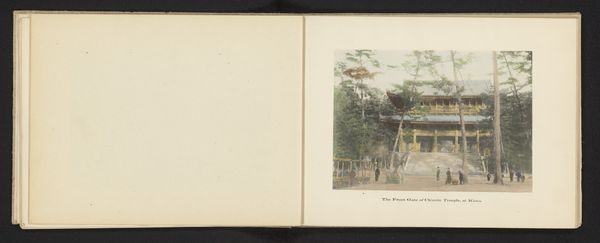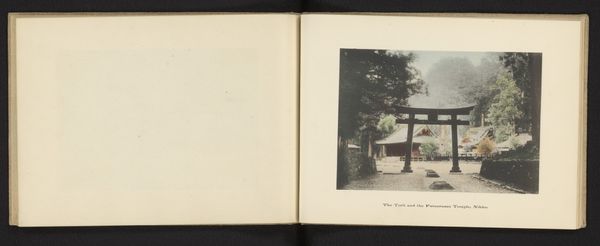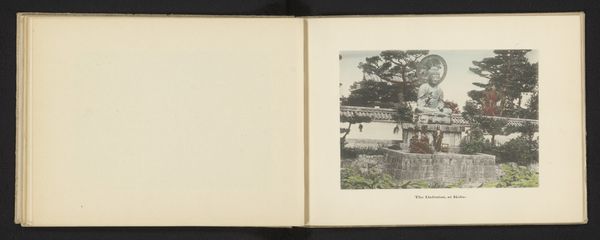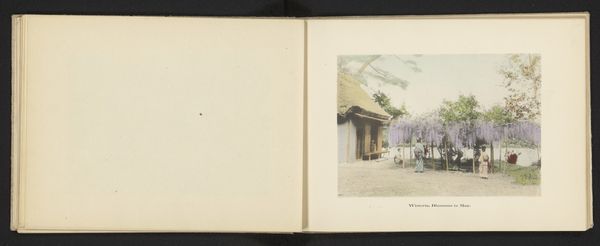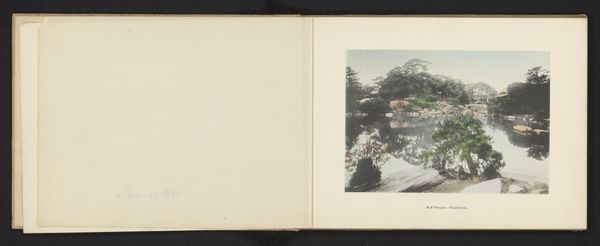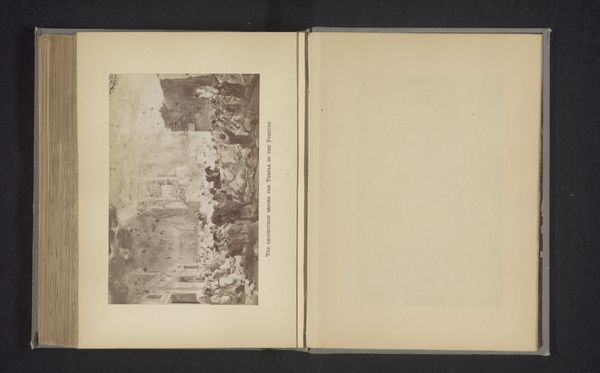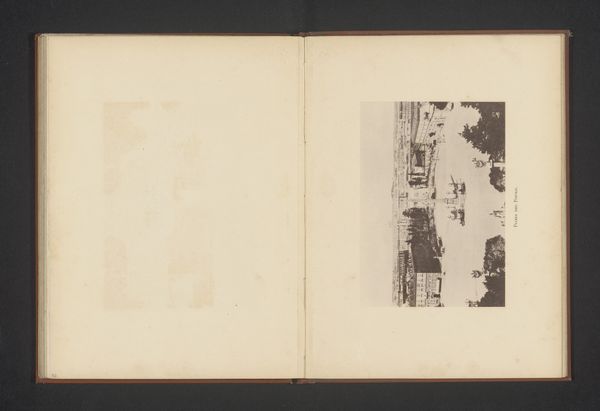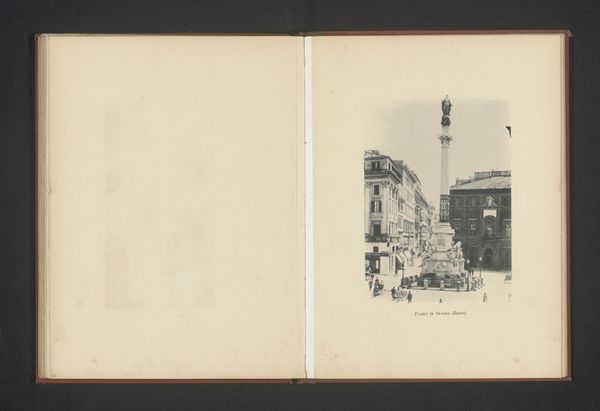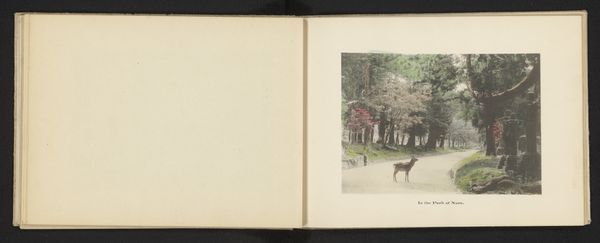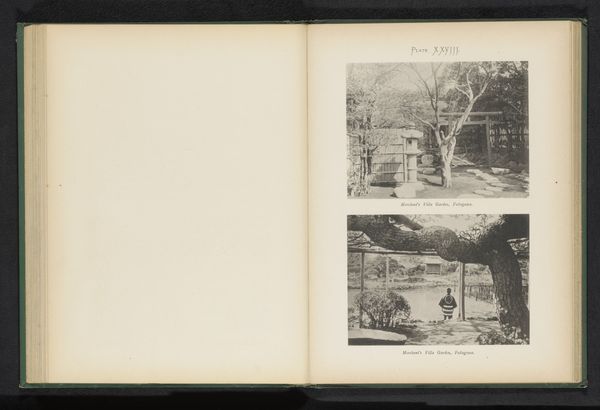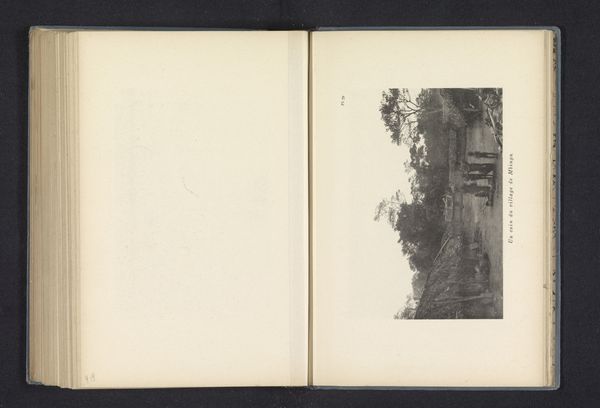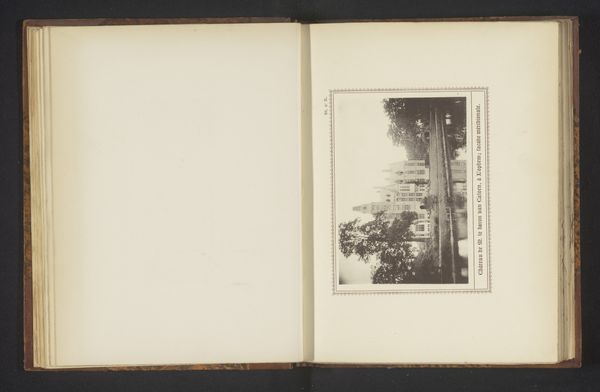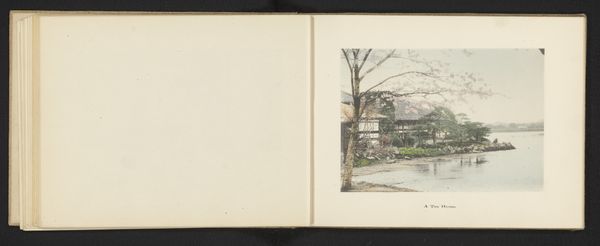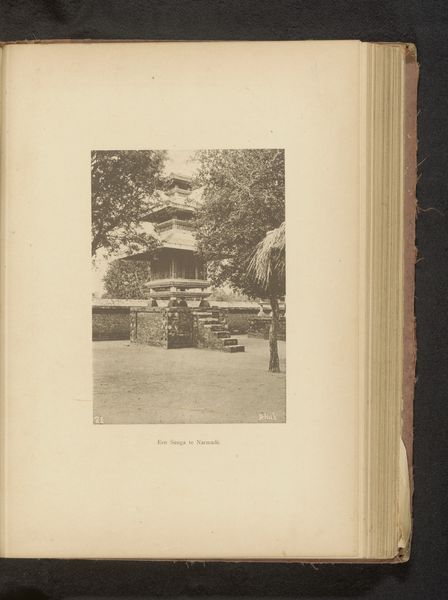
photography
#
asian-art
#
landscape
#
photography
Dimensions: height 105 mm, width 149 mm
Copyright: Rijks Museum: Open Domain
Kōzaburō Tamamura made this photograph of the Ikuta Temple in Kobe at the turn of the 20th century. It's a hand-colored albumen print, a popular format during that time that allowed for a blend of photographic realism and the aesthetic appeal of traditional painting. Japan was undergoing rapid modernization during this period, opening up to the West after centuries of isolation. Photography studios like Tamamura's catered to both foreign visitors seeking exotic souvenirs and a domestic audience keen to embrace new technologies while preserving their cultural heritage. The image presents a carefully composed view of the temple grounds, emphasizing the harmony between nature and architecture. Yet, it also subtly hints at the changing social landscape, with figures dressed in both traditional and Western attire mingling in the scene. To fully appreciate this work, one might delve into the history of photography in Japan, the socio-economic factors driving the Meiji Restoration, and the cultural exchanges between Japan and the West. This is a lens through which we can view art as a product of specific times and places.
Comments
No comments
Be the first to comment and join the conversation on the ultimate creative platform.
